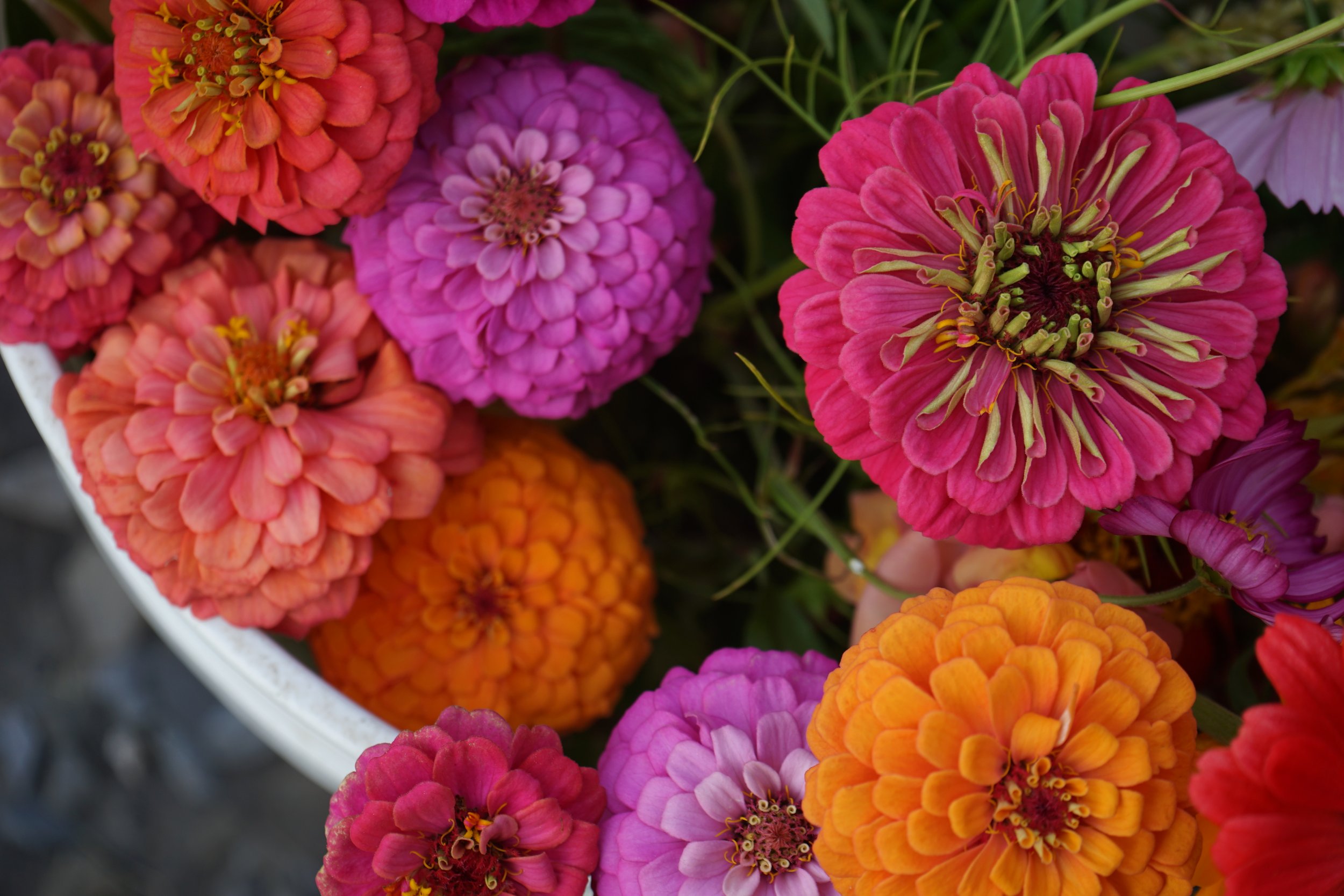
Reduce your climate impact
with locally grown flowers
About 80% of all cut flowers sold in the U.S. are imported, with most coming from Columbia, Ecuador, Holland, and African countries such as Kenya, where flowers can be grown year-round.
The cost to our environment is high.
Greenhouse gas emissions from transportation and wasteful packaging to protect flowers in transit contribute to a warming climate.
The irony is the system we use in the U.S. to create bouquets is destroying the habitat our beloved flowers rely on.
If you want to reduce your carbon footprint, local flowers are a better option.
At our micro-flower farm in Vermont, we grow and sell everything here. There are zero emissions from transportation, and our flowers are simply wrapped in recycled paper.
Plus, we limit our use of plastic during the growing process, which is widespread and problematic in the flower industry.
Our flowers also support butterflies, honeybees, and other beneficial insects that our ecosystem depends on.
We grow whimsical, simple flowers to create bouquets that look natural and effortless.
We focus on growing varieties that require minimal labor and sell directly through our farmstand so we can keep our costs down and our bouquets affordable.
You’ll find these varieties and more in our bouquets:
Asters
Celosia
Cosmos
Echinacea
Feverfew
Giant marigolds
Gomphrena
Lavender
Snapdragons
Sunflowers
Verbena
Yarrow
Zinnias
Thank you for supporting local flower farming!





